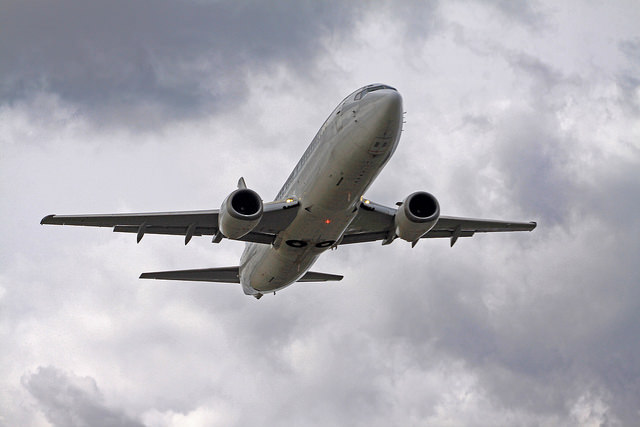Not too long from now, you might be able to ride to the airport in your driverless Uber, hit up the self-check-in kiosk for your ticket, and hop on a plane that can fly without a pilot. Welcome to the future.
According to Reuters, Boeing is working on a way to send self-piloted airplanes up into the stratosphere. On Thursday, the company’s vice president of product development, Mike Sinnett, said he’ll be testing pilotless software in a flight simulator this summer, and wants to fly on an airplane in 2018 with “some artificial intelligence that makes decisions that pilots would make.”
Videos by VICE
“The basic building blocks of the technology clearly are available,” Sinnett said during a press briefing.
While the prospect might sound terrifying—considering Google and Tesla have faced a few disastrous incidents while fine-tuning their own driverless car technology—most planes fly without the help of pilots every day. According to the Washington Post, aircraft autopilot has become so advanced that the US Department of Transportation has grown increasingly worried today’s pilots aren’t skilled enough to intervene in the event of an electrical blackout. Most pilots just manually operate the flight for takeoff and landing, USA Today reports.
Still, Sinnett said he wants to be sure Boeing’s pilotless planes can handle the operations just as well as their human counterparts—especially in the event of an emergency. Just like self-driving cars, self-piloted planes may one day need to be equipped with some kind of program to decide how to navigate a moral dilemma.
“If it can’t [transport passengers safely], then we can’t go there,” Sinnett told Reuters. “I have no idea how we’re going to do that, but we’re studying it right now and we’re developing those algorithms.”
If the prospect of flying on an unmanned aircraft still seems daunting in 2035 or whatever, you’ll just have to go visit your local cyborg pastor and pray for safe travels, because by then most of the workforce will be replaced by robots anyway.




